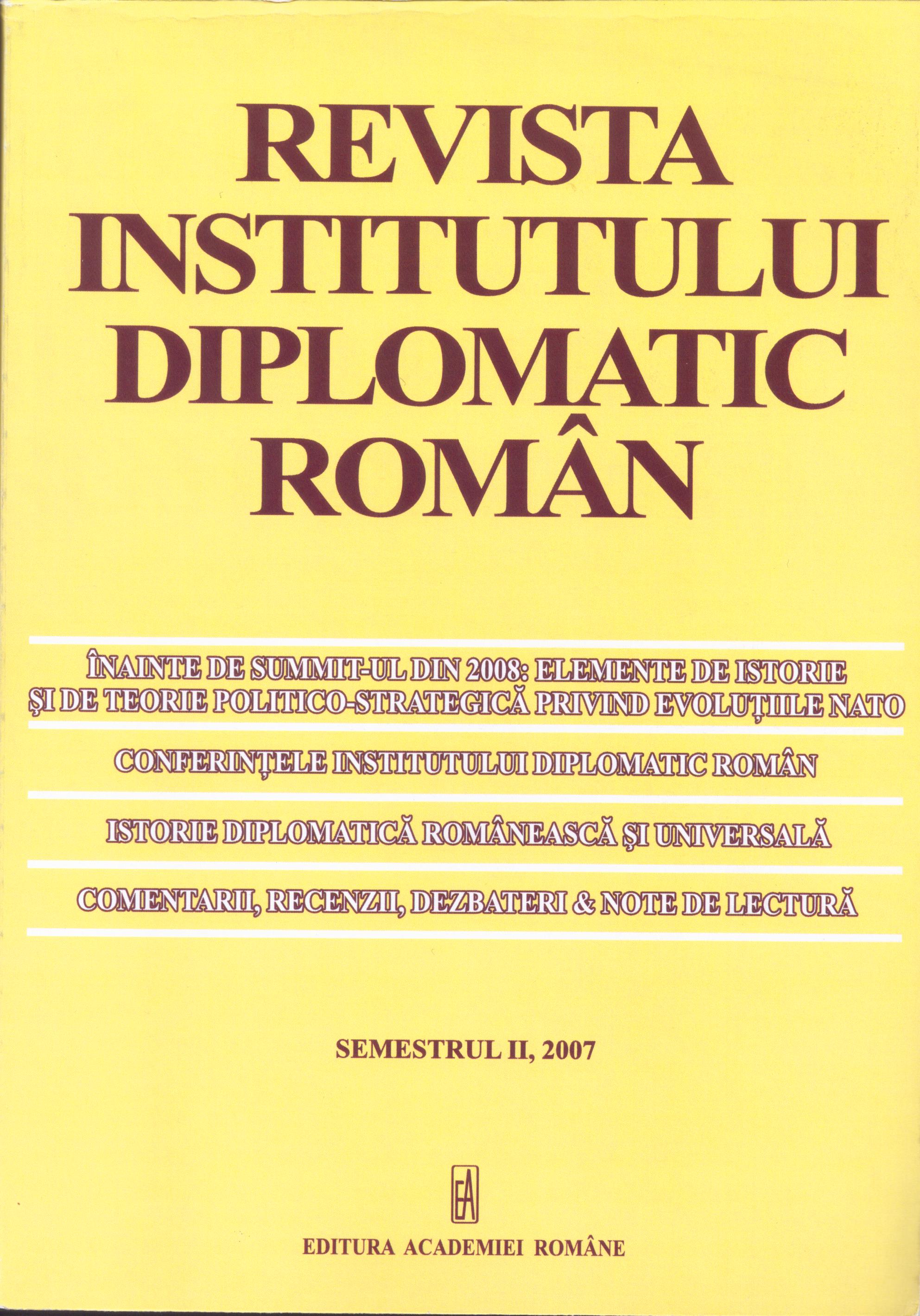Relaţiile NATO-Rusia: Perspectiva unui nou război rece?
NATO-Russia Relations: the Potential for a New Cold War?
Author(s): Mădălina Virginia AntonescuSubject(s): Politics / Political Sciences, Politics, Law, Constitution, Jurisprudence
Published by: Institutul Diplomatic Român
Summary/Abstract: The article is trying to make a comparative approach to the new Cold War issue, by bringing arguments and contra-arguments to this hypothesis. Thus, we can say that, in the political relations between USA/NATO ( as military alliance dominated not only at the decisional level, by USA) and Russia on the other hand, the opinions are various: from the hypothesis of a cold peace between Russia and USA, or the hypothesis of a cold wave (as accumulated tensions in the official political rhetoric, but not substantiated in war declarations or in characteristic cold war strategies), until the hypothesis of a new cold war between USA and “great powers challenging USA” as Russia and China. Nevertheless, one cannot ignore the visible alliance between Russia and China into the framework of SCO (the Shanghai Organization for Cooperation), an international organization grouping energetically wealthy countries from Central Asia to Iran, alliance that is finding itself in a process of transformation into a military and energetic club of non-occidental powers, as a NATO counterbalance. Also, one can note the profound transformation of NATO, after the 1991 and the collapse of USSR, that became, in the spirit of its New Strategic Concept, from a close alliance directed against the soviet bloc, an open, reformed, extended military alliance characteristic for other types of wars and enemies. Instead of disappearing, like the Warsaw Pact, NATO opened a process of internal reform (specializing itself on flexible, mobile and rapid responses in areas of conflict outside the Euro- Atlantic Zone; in a global type of interventions, against new types of enemies like international terrorist networks, Islamic extremism, proliferation of weapons of mass destruction). In mean time, NATO has started special forms of partnerships (as Partnership for Peace/ 1994, or the political dialogue for cooperation with Russia and Ukraine) with states of former soviet space. NATO has expanded towards this space, receiving as full members states that once were parts of Warsaw Pact. This “European integration trend for the maintenance of peace and security in the old continent”, constituting the main justification for NATO expansion, was viewed by Russia as a direct menace to its national security (a new doctrine of containment of Russia, by drawing up a “cordon sanitaire” of NATO member states). Other directions in the political relations between NATO/ USA and Russia that are suggesting the possibility of a new cold war, can be decrypted in concrete movements of abandoning the legal framework of disarmament and deterrence destined to maintain a balance of terror in the world and especially in Europe between the two parts: the USA retreat from ABM; the non- ratification by NATO members states of the Modification Act to CFE; the suspension by Russia of its troupes retreat from Transnistria/in 2004; the American initiative to build the anti-missile shield in Europe, by locating its elements in former soviet states like Czech Republic and Poland, a decision that was perceived by Russia as creating a direct menace to its frontiers; the Russia decision to unilaterally suspend from CFE as reaction to the USA “Star War” project; the absence of any vote for Russia in the decisional process regarding the NATO expansion towards countries of former soviet space and even in the framework of NATO – Russia Permanent Joint Council. There are many main arguments for someone interested in finding political direction towards a new cold war between Russia and NATO/USA, but we must take into account that the Cold War took place into a bipolar international political context, not in the globalist and interdependent present world, and that the Cold War supposed the existence of some specific method and strategies for a tacit combat between these two separate blocs, based on the logic of zero sum game, that is not anymore valid into the new political context, where these powers must cooperate and find common solutions to the global problems like international terrorism, Islamic extremism, proliferation of WMD and their possible use by non-state actors.
Journal: Revista Institutului Diplomatic Român
- Issue Year: II/2007
- Issue No: II
- Page Range: 312-327
- Page Count: 16
- Language: Romanian

